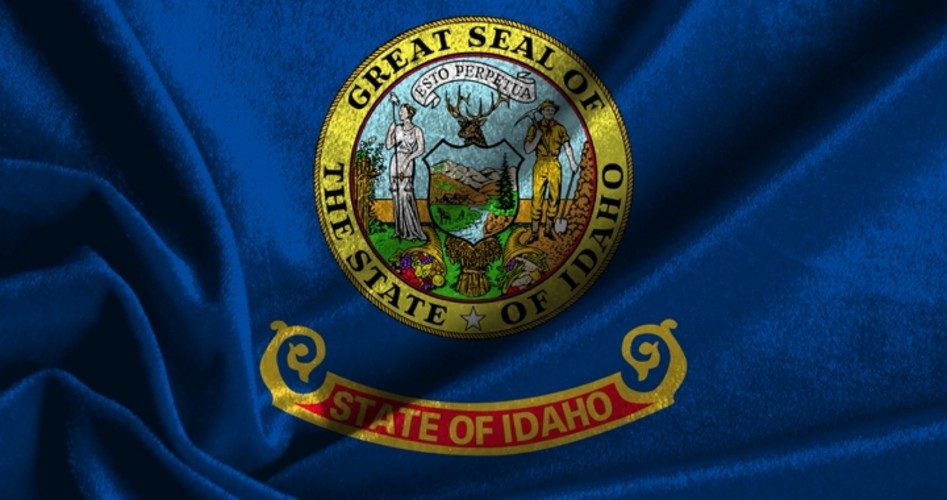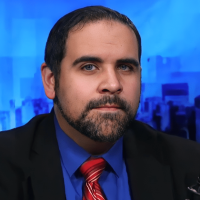
After three days of intense emotional and intellectually stimulating testimonies from both sides, Idaho’s House State Affairs Committee — by a vote of 5 to 10 — resoundingly rejected House Concurrent Resolution 32, an application to Congress to call a convention to propose amendments to the Constitution under Article V. The stated purpose for this convention would have been to propose an unspecified number of amendments purportedly to “impose fiscal restraints on the federal government, and amendments that limit the power and jurisdiction of the federal government and no other amendments on any topic whatsoever.”
The main organization behind HCR 32 was the Convention of States Project, also known as COS, which has successfully passed such application resolutions in the following states: Georgia (SR 736, 2014), Florida (SM 476, 2014), Alaska (HJR 22, 2014), Alabama (HJR 112, 2015), Tennessee (SJ 67, 2016), Indiana (SIR 14, 2016), Oklahoma (SJR 4, 2016), Louisiana (SCR 52, 2016), Texas (SJR 2, 2017), Missouri (SCR 4, 2017), North Dakota (HCR 3006, 2017) and Arizona (HCR 2010, 2017).
A convention of states, also known as a constitutional convention (Con-Con) or amendments convention, opens the entire Constitution to extensive rewrite or possible replacement altogether just as the Articles of Confederation were in the Philadelphia Convention of 1787. Last week was grueling for both sides, as testimony hearings for HCR 32 began on the morning of February 6 and lasted well past the allotted time and continued to the next day. Surprisingly, the usual three-minute limit per testimony was lifted, allowing for individuals to deliver unabridged remarks and fully express their thoughts on the proposed convention application resolution.
“By my count, the people that got up here and testified were probably 4-1 against having a convention,” state Rep. Lynn Luker (R-Boise) told the Spokesman-Review newspaper. “The email I’ve gotten has been even more lopsided.”
Luker, a former Con-Con advocate himself, surprised several at the committee hearing when he testified against the convention resolution, pointing out that even with the same three-fourths of states safeguards in place, as today under Article V for any new amendments proposed by either Congress or at a constitutional convention, both the 16th and 17th Amendments (individual income tax and the direct election of U.S. senators, respectively) were still ratified and have proved to be detrimental to the American Republic.
Luker’s surprising testimony accurately points out one of the most glaring flaws in the COS-sponsored Con-Con resolutions —namely that Article V’s three-fourths states ratification requirement is no guaranteed safety valve against the ratification of any radical or harmful amendments that might be proposed at a convention. In other words, there is no guaranteed way to avoid a runaway convention short of not convening it in the first place.
Luker was one of the 10 “Nay” votes against HCR 32.
In addition to Luker, the nine other “Nay” votes came from Representatives Brent Crane (R-Nampa), Joe Palmer (R-Meridian), Vito Barbieri (R-Dalton), Steven Harris (R-Meridian), Priscilla Giddings (R-White Bird), Christy Zito (R-Hammett), Representative Heather Scott (R-Blanchard), Elaine Smith (D-Pocatello), and Paulette Jordan (D-Plummer).
The Spokesman-Review quoted Rep. Zito as saying, “How I see this is we value our Constitution; we feel it is something we must protect and defend and we have taken oaths to do so.” According to John Birch Society Coordinator for southern Idaho Tom Munds, who was present at the testimony hearings, Rep. Zito asked “great complex questions in the hearing and hammered COS very hard.”
Despite the overwhelming amount of money, time, and manpower (including an in-person visit by Mark Meckler, the president of COS Action) spent to bring about a Convention of the States, the pro-COS Idaho legislators have little to show for it, thanks largely to the work of The John Birch Society (JBS) and its members across Idaho.
“Our [JBS] members are buzzing with victory,” Munds told The New American. “It has been no secret from all we have read that we had viable organized and well-funded opposition. We knew and sensed the increased strength over the years and were all pretty sure we were going to lose it.”
“But,” Munds said, JBS members “did what they knew to do, not to focus on the negative but the facts and in action.” And that they did, sending e-mails, making phone calls, and using social media to get the word out about the potential ramifications of a constitutional convention.
“People today are standing in awe how we, the JBS, ‘that don’t do anything’ can overcome such odds and until they become members, will never know,” Munds said.
In a written statement to The New American, Regional Field Director for The John Birch Society Bliss Tew, who also covers northern Idaho as a coordinator, credited the defeat of the COS resolution to the active dedication and volunteer work of JBS members as well as open-minded Idaho legislators, declaring:
The victory against HCR 032, application resolution modeled on COS recommendations, in Idaho is the result of organized opposition, educational action, coordinated activities, generosity of JBS members, time expenditures of JBS volunteers, open mindedness on the part of legislators attempting to understand all sides of the issue, help from legislators like Dorothy Moon and Christy Zito, who opposed the COS application resolution, and the great educational materials related to the topic of Article V available for sharing from The John Birch Society.
Tew further thanked members for being able to bring in constitutional expert and JBS speaker Robert Brown, known throughout the country for delivering articulate, highly informative, and educational presentations related to the constitutional convention on behalf of the JBS, for helping to defeat the HCR 32; Tew said:
It is also thanks to the timely fund raising done that paid expenses for JBS spokesman Robert Brown to travel to the Idaho State capital to speak on January 23rd on the topic of REIN IN BIG GOVERNMENT WITH ARTICLE VI, NOT V so that Idaho legislators who attended his presentation could hear of the proper remedies for solving our problem of a federal government that has escaped its compliance with the Constitution.
Robert Brown is available to deliver his “Rein In Big Government With Article VI, Not V” presentation through Freedom’s Voices, the national speakers bureau of The John Birch Society. Anyone interested in scheduling Brown for a presentation in their area can contact Robin Kinderman of The John Birch Society at [email protected].
Tew concluded his remarks to The New American by thanking all of those involved who helped make the defeat of HCR 32 possible:
Thank goodness for the active JBS members across Idaho that worked in concert together to write, phone, e-mail their legislators with important information about the dangers of opening the Pandora’s Box of an Article V constitutional convention.
For those who traveled to Boise to be heard at the legislative hearing, we are grateful. We are grateful too for allies from outside of The John Birch Society that were sharing their alerts and testimony. Organization wins the day and with coordination they did “seize the day” day after day over time.
The John Birch Society’s members all across Idaho can pat themselves on the back, as they have certainty earned it and more. Their sweat and toil to both preserve and protect the Constitution have paid off and serve as a reminder of what others can also accomplish through membership in a well-organized, education-action, and grassroots organization such as The John Birch Society.
Photo: Viktorcvetkovic/iStock/Getty Images Plus




